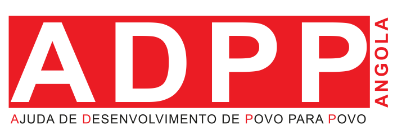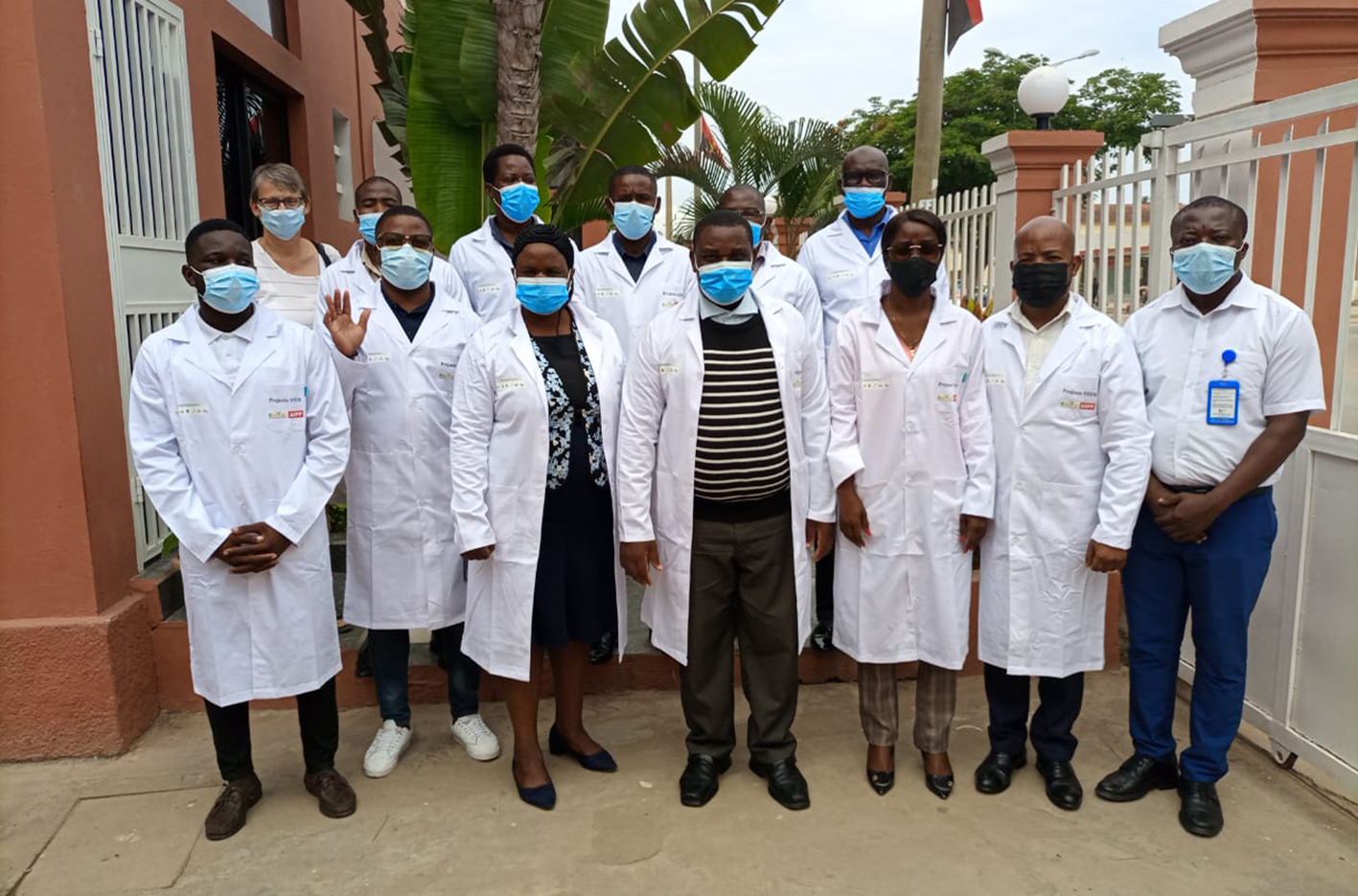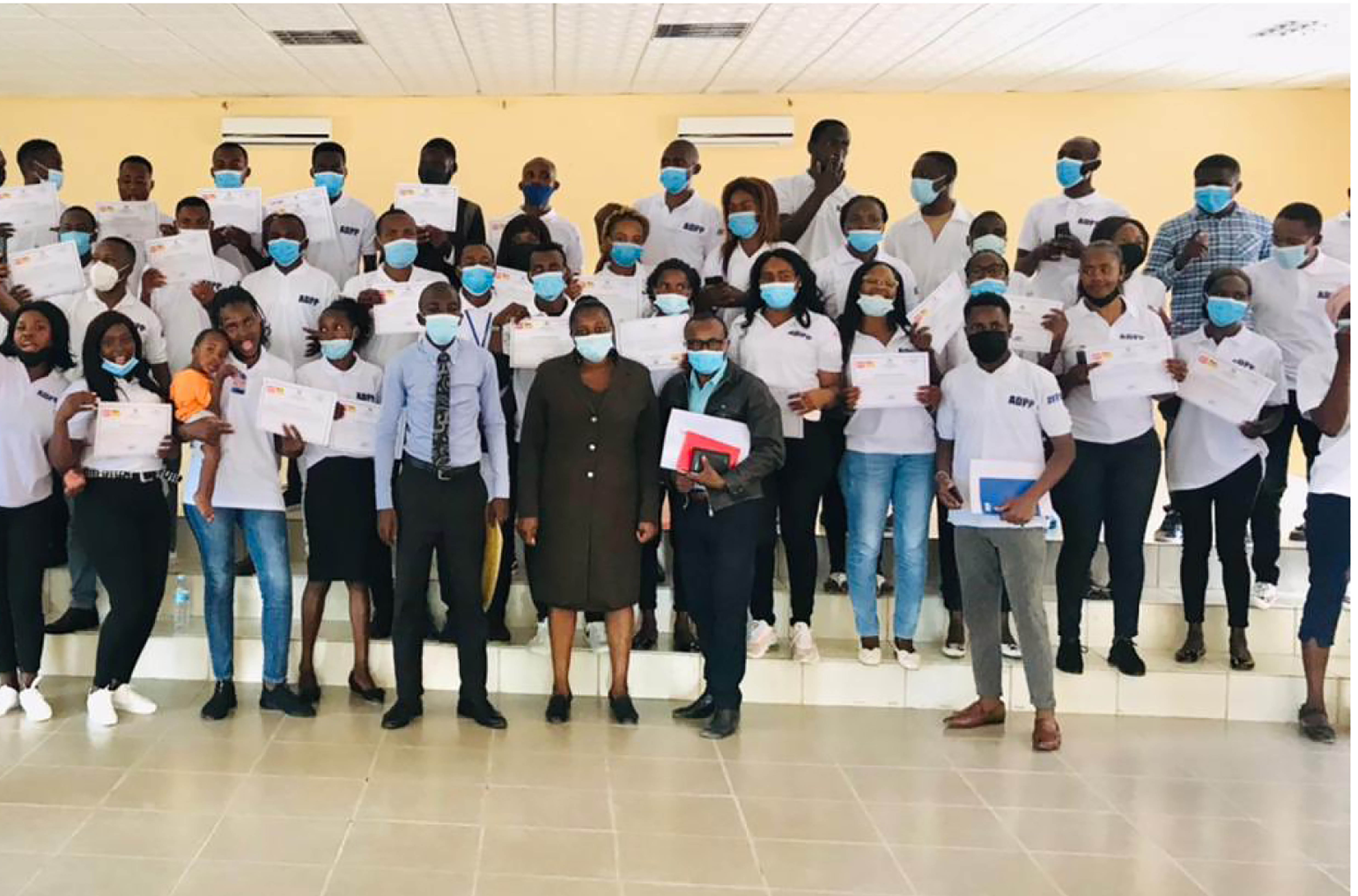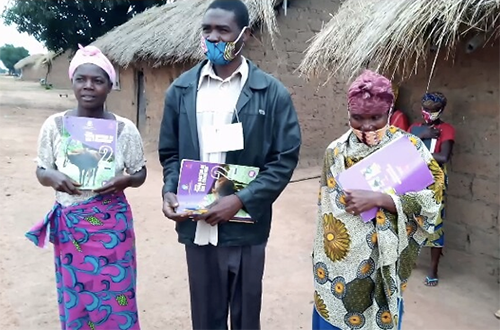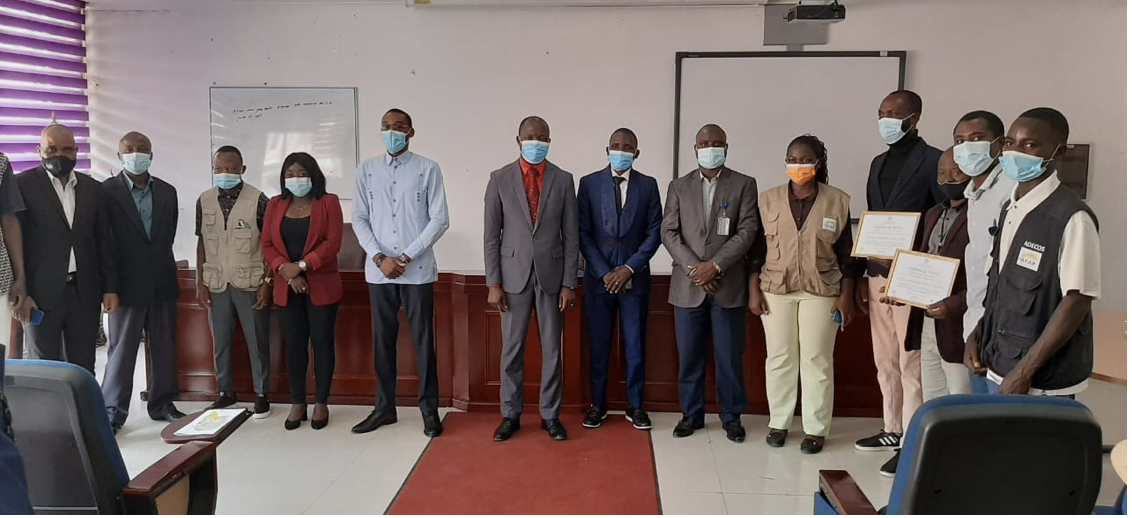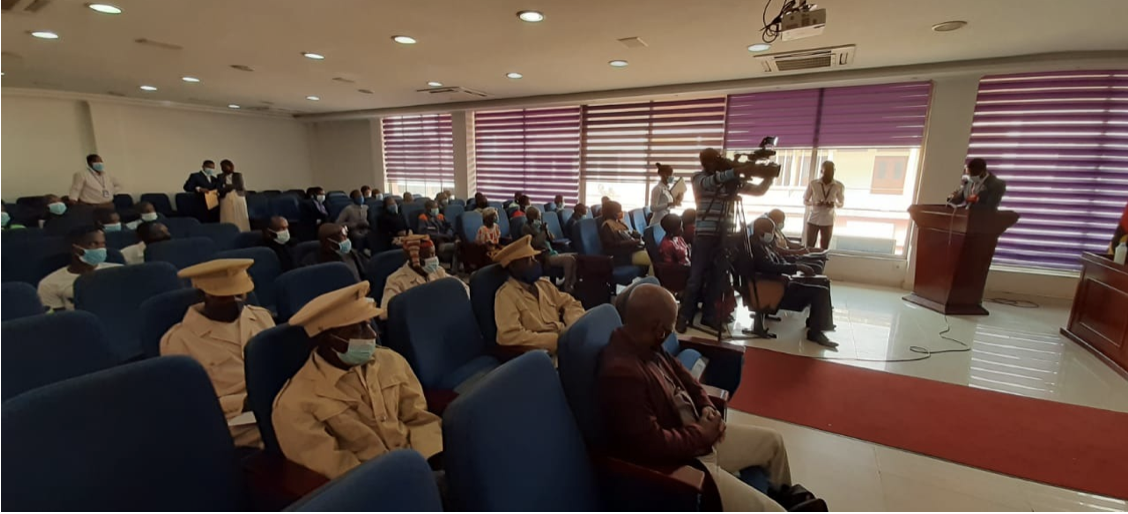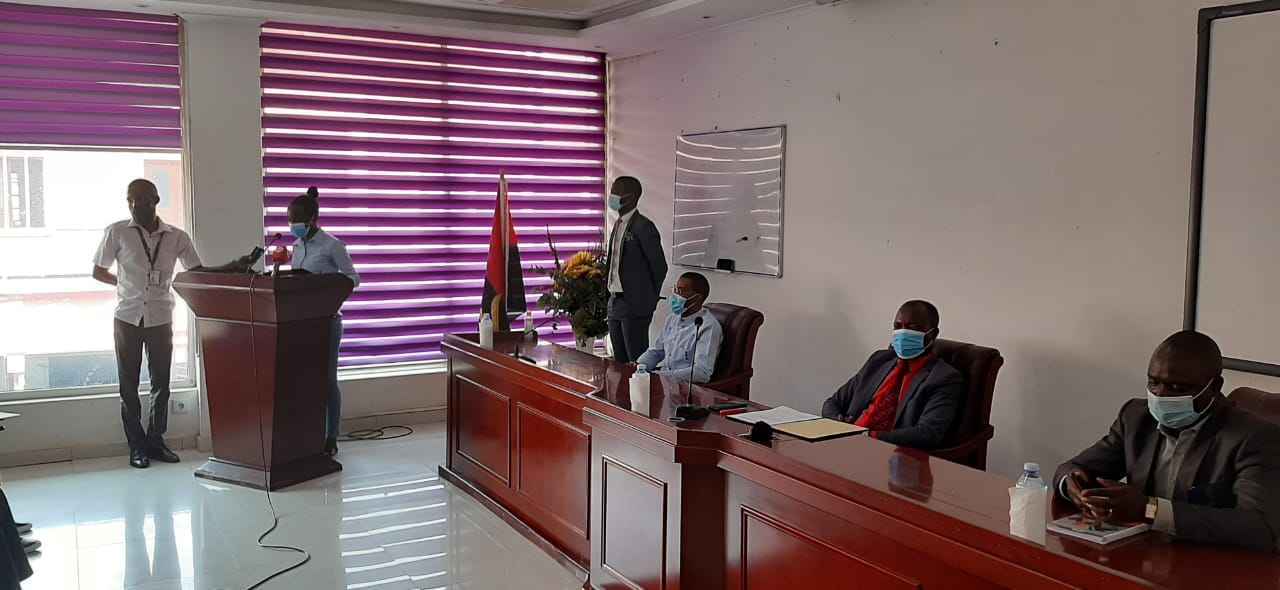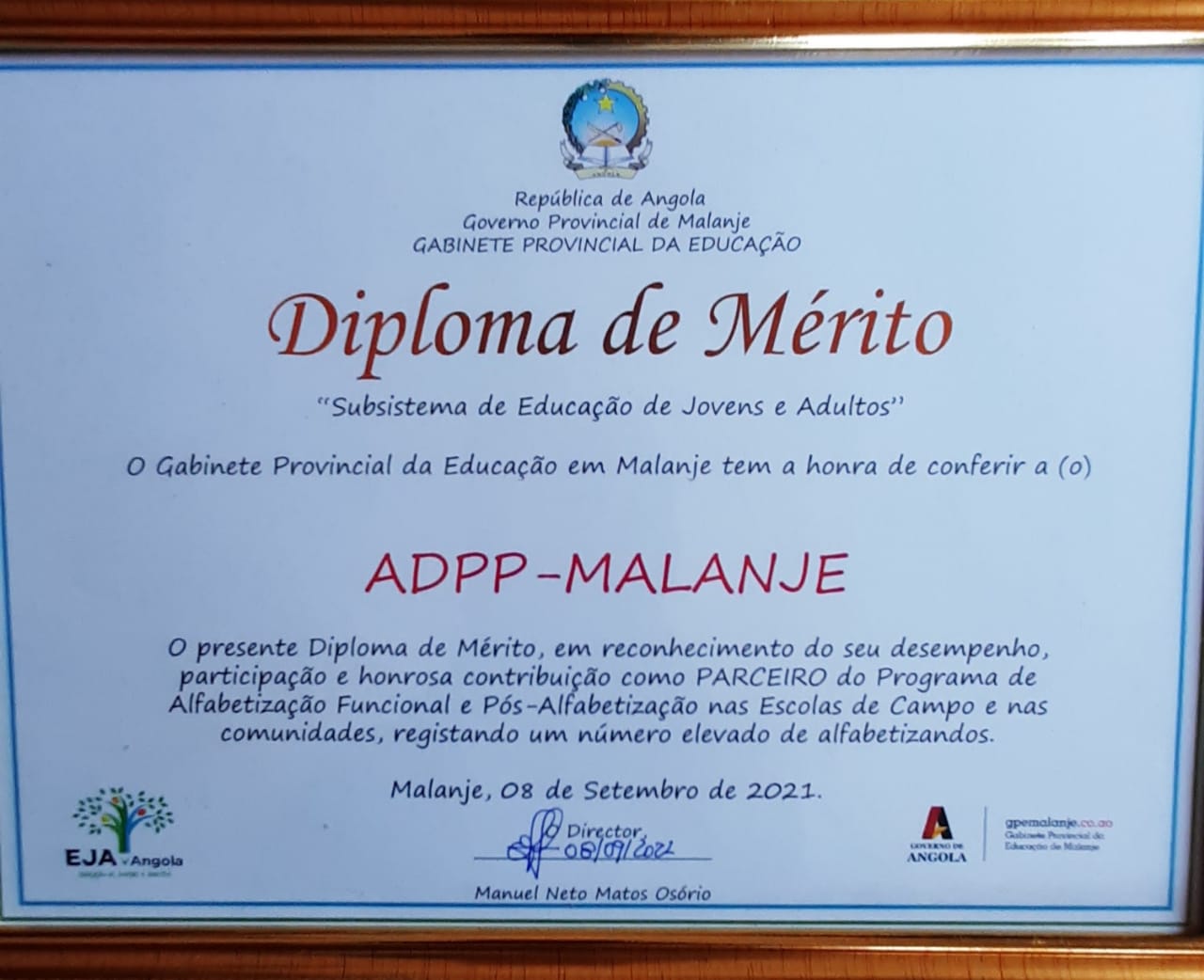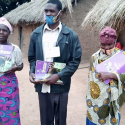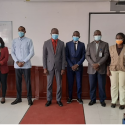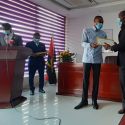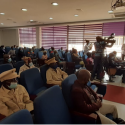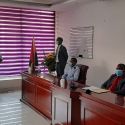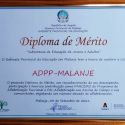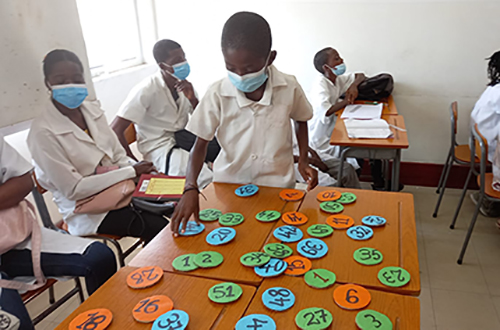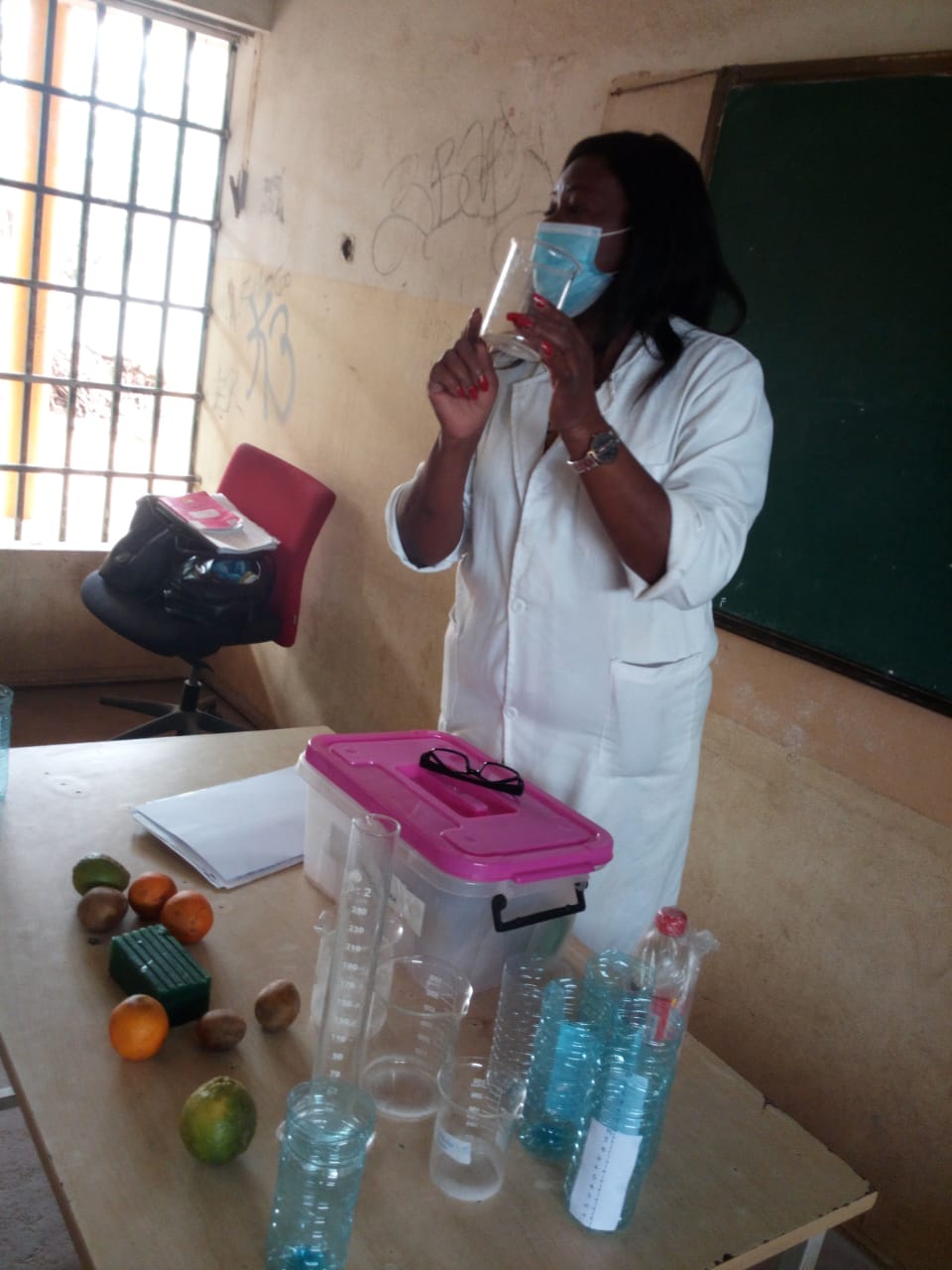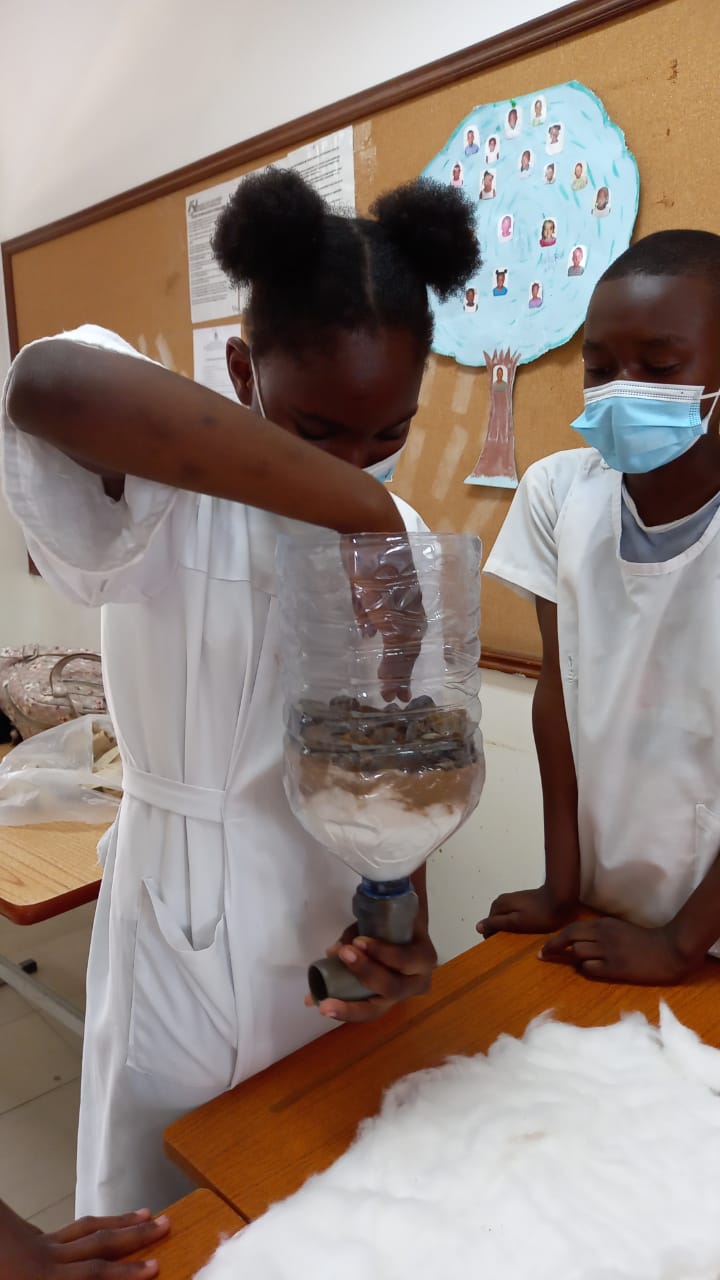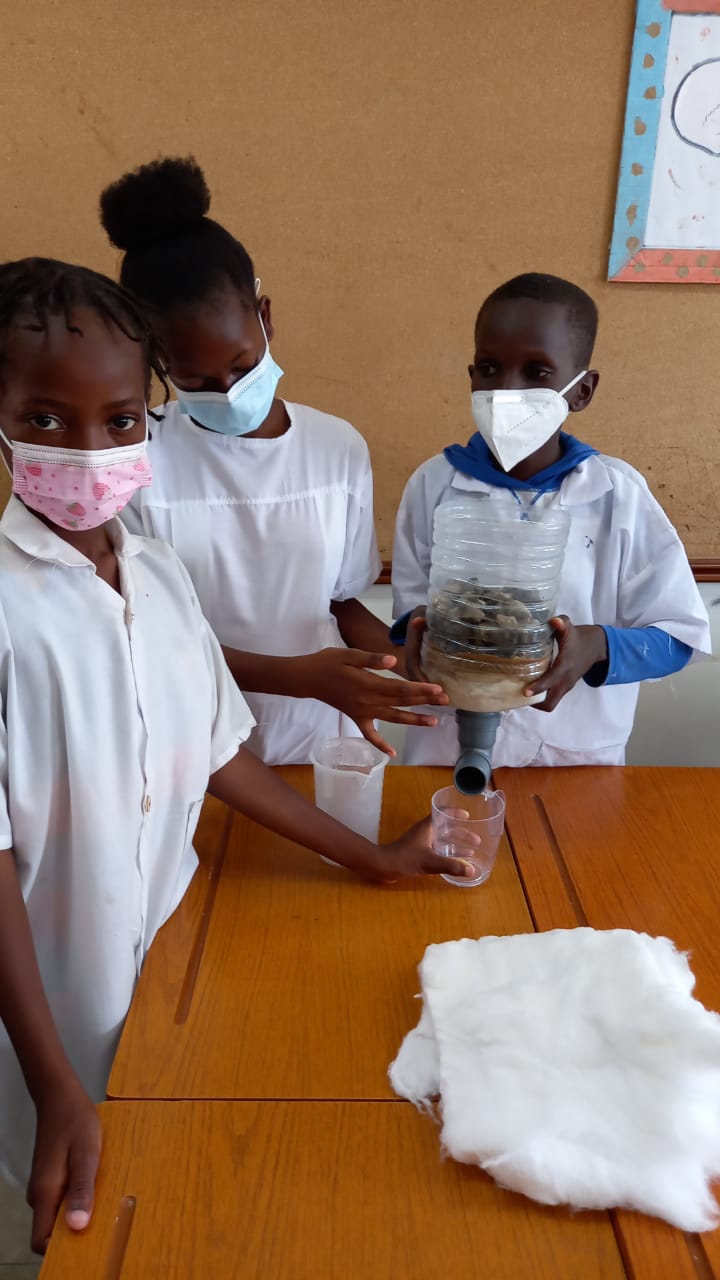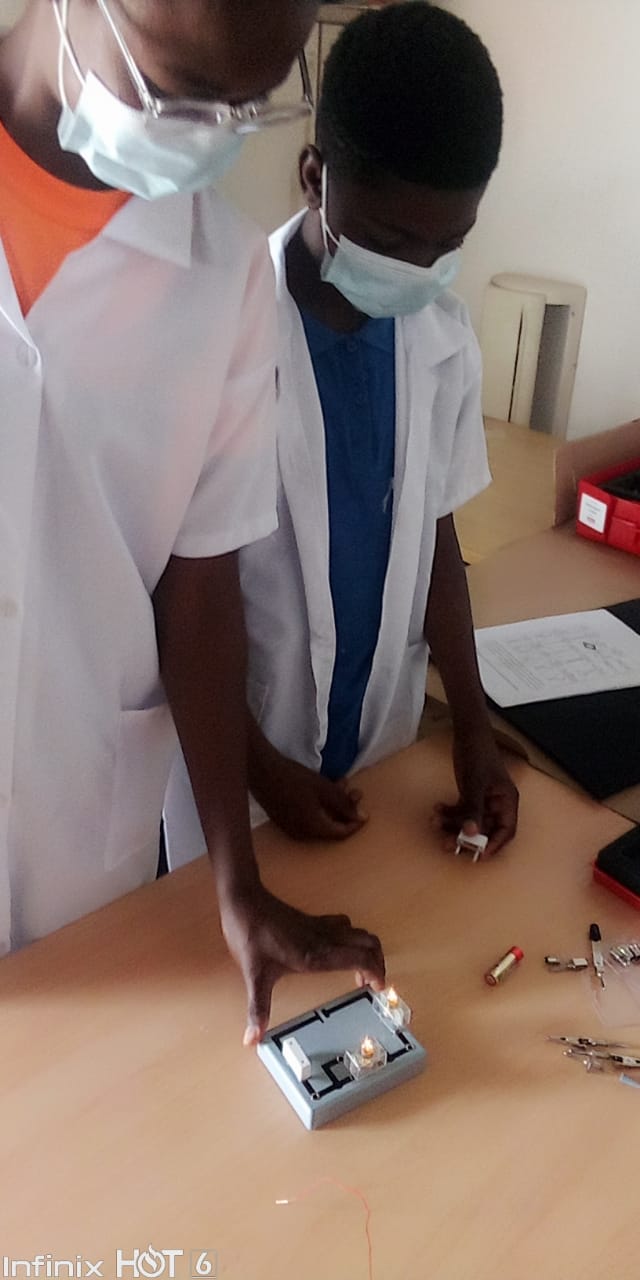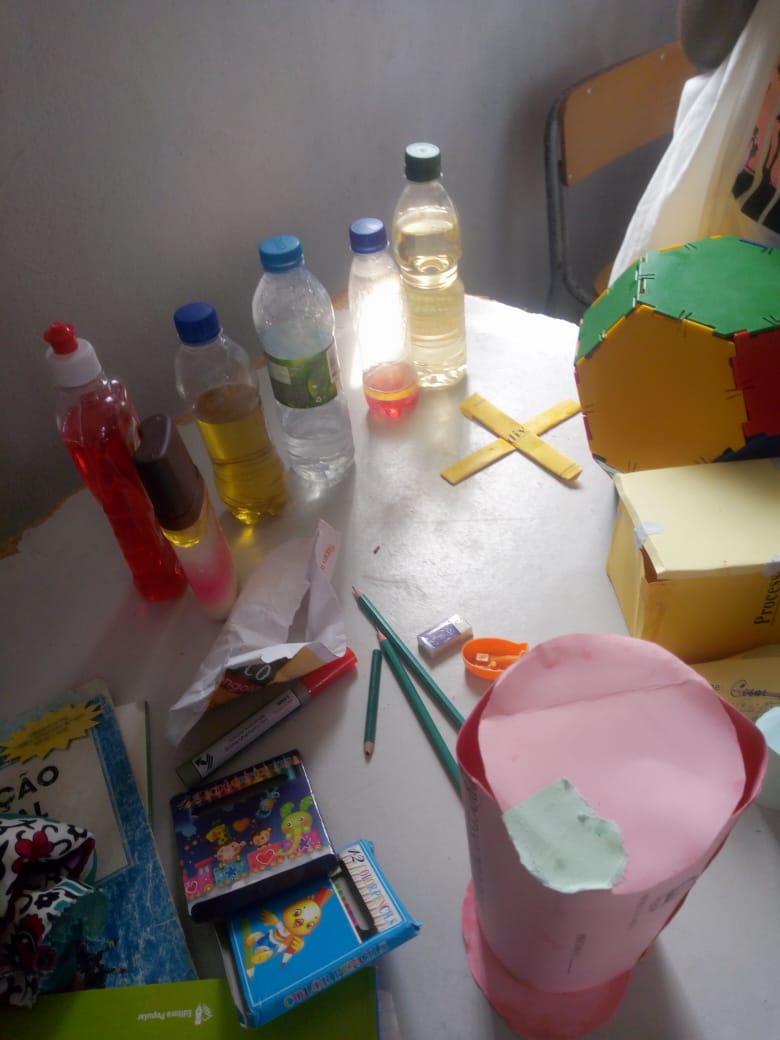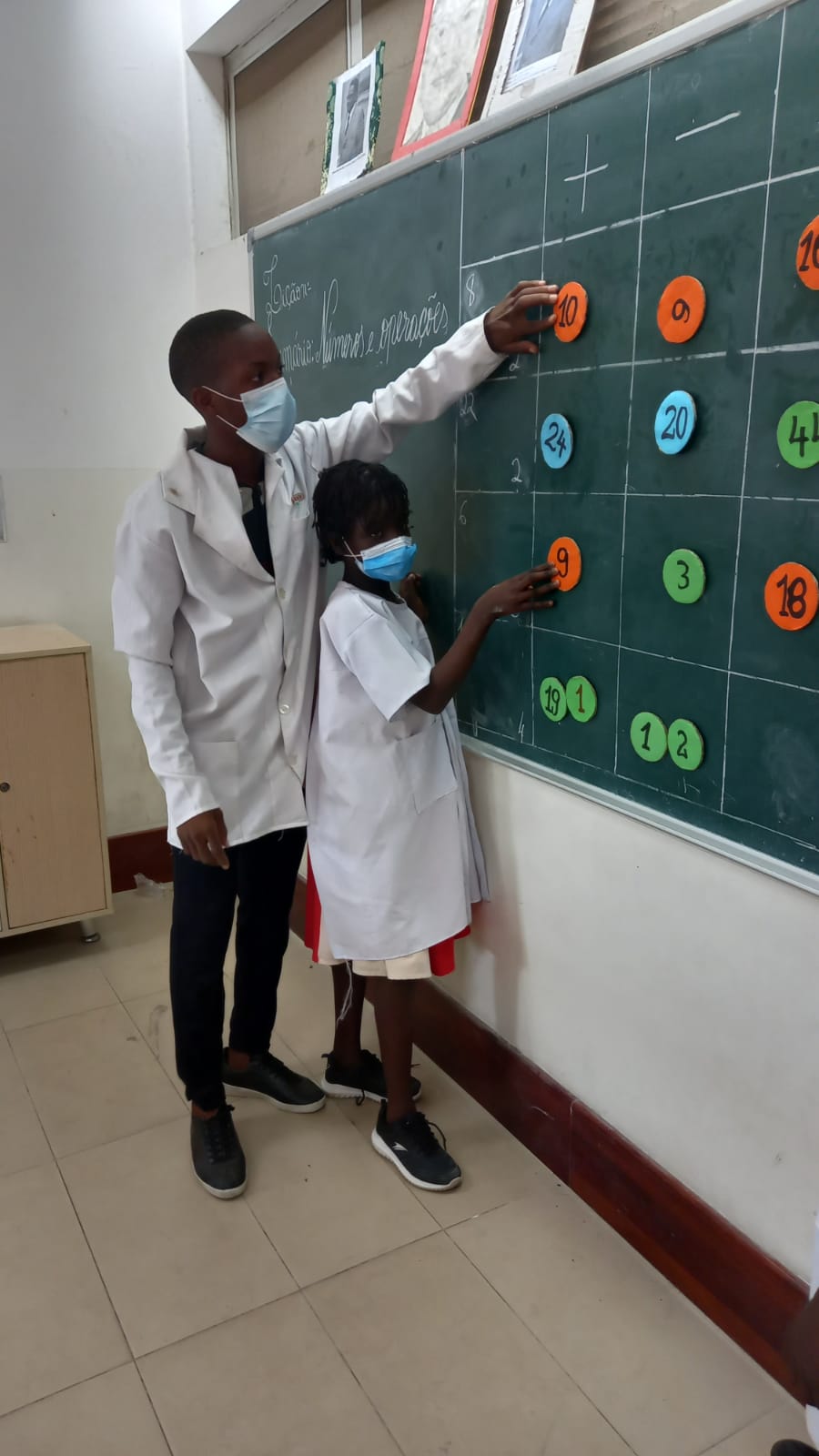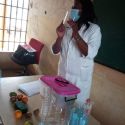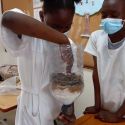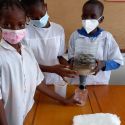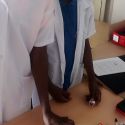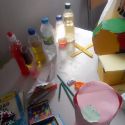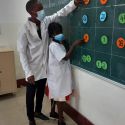After two successful phases in Luanda, the STEM project is expanding to Bengo Province, where directors of teacher training schools and polytechnics attended a presentation. The aim once more is to provide theoretical and practical training for teachers, as well as STEM manuals and basic equipment, with the ultimate goal of providing better lessons for their students. The project continues in Luanda
Thousands of school children are benefiting from the additional skills, and renewed motivation and enthusiasm that the in-service training course engenders in participants. Primary school teachers in Gambos and Bibala received their certificates in December on completion of the 40 Pedagogical Sessions. Berta Morais, Head of Huíla Provincial Education Office, spoke of the impact ADPP has in Huíla and Namibe, during the graduation ceremony for 154 in-service teachers in Huíla. In Bibala, Namibe, 73 teachers graduated.
A new school year is underway at ADPP Teacher Training Schools and polytechnics. The disruption and frequent reorganisation caused by the Covid-19 pandemic that characterised 2020-2021 has left its mark but in some ways, the schools and the students have emerged stronger than ever, with consolidated education and sanitation systems and recognition for the efforts made to control the pandemic.
When schools returned on 1 September, there were 3000 students at ADPP’s 15 Teacher Training Schools and 1500 students at the eight polytechnics. Following celebrations of the start of the academic year, one of the first events to be marked was World Literacy Day.
For many of the schools, September is harvest time in the vegetable garden. As future primary teachers at rural schools, agricultural and horticultural skills are important for students at ADPP Teacher Training Schools. Equally important, fresh produce supplements the diet at the schools and instils healthy eating habits among the students.
In other education news, a former student from Team 2017 at the ADPP Teacher Training School Benguela, André Francisco Ngola, has just published a collection of poems based on his period of teacher training. The title of the collection “Café Evening” brings to mind the tradition of cultural evenings at ADPP schools.
On quite a different tack, Women in Action projects and their contribution to the socioeconomic empowerment of adolescent girls and young women featured as a case study of good practice in an online event on 22 September, organised by the European Training Foundation (ETF) and Skillman on Work-Based Learning (WBL). Watch the webinar here, with ADPP’s intervention just after the 1 hour mark.
Literacy rates for adults in Angola are well below the global average and women continue to lag furtherst behind. ADPP has been playing an important role, especially in rural settings, to redress the situation and empower thousands of people with skills that open up opportunities and choices in life.
Celebrating International Literacy Day 2021 is particularly gratifying after 18 months of disruption caused by the Covid-19 pandemic. Not surprisingly, UNESCO chose “Literacy for a human-centred recovery: Narrowing the digital divide” as the theme this year. ADPP’s approach is very much human-centred.
In Malanje, ADPP Malanje joined the Provincial Education Department in an event which included the Malanje Municipal Administrator, Malanje Agricultural Director, the Local Education Director, the Head of the Education Department, traditional and religious authorities, and representatives of IPA, FAS and ADRA. ADPP Literacy learners who successfully completed Module 1, 2 or 3 received their diplomas and a special diploma of merit was awarded to ADPP.
In Quibala, Cuanza Sul Province, and in Gambos, Huíla Province, International Literacy Day was chosen as the appropriate moment to launch the Suport for Angolan Women Farmers project that is benefiting thousands of female farmers, and includes a literacy component. In Cuanza Norte, the day was celebrated in the shade of one of the community jangos built as part of the AFAP/ADPP project.
Of course, all ADPP teacher training schools and polytechnics across the country also celebrated International Literacy Day.
STEM is all about creativity, exploration, experience, skills, analysis, decision-making, motivation, inspiration, flexibility, curiosity, teamwork, communication, sustainability and being ready to respond to real world challenges. In Angola, such challenges include water pollution, food production, recycling, and renewable energy, all of which are tackled through the STEM programme of activities, field trips and experiments. One of the biggest challenges in STEM teaching is helping pupils grasp basic concepts, whether in mathematics or science, which is where practical sessions are essential.
ADPP Angola’s STEM project is making great progress. In collaboration with the Ministry of Education and INFQE (National Institute for Teacher Training) and with funding from Esso Block 15, the project aims to improve the quality of STEM teachng in schools. Quality lessons are ensured through theoretical and practical training of in-service and pre-service teachers, STEM teaching manuals, and the provision of science kits including microscopes.
Teacher Training Schools Mutu Ya Kevela, ADPP Luanda, Marconi and Dom Bosco, ADPP Polytechnics Zango and Ramiro, and around 30 mostly primary but also lower secondary schools in Luanda are participating. Despite the disruption to education caused by the Covid-19 pandemic, training and lessons continued during the revised academic year 2020-2021, and have got off to an excellent start at the beginning of the new school year this September.
